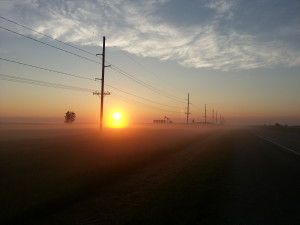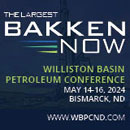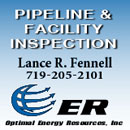URTeC Takes Center Stage in Colorado
Record Attendance Expected as Professionals Across All Segments of the Unconventional Arena Converge for Integrated Event
Complimentary Press Passes Available Here
August 18, 2014//Tulsa, OK – The second edition of the Unconventional Resources Technology Conference (URTeC) takes center stage 25-27 August at the Colorado Convention Center in Denver, CO. The 2014 event highlights unconventional resource possibilities in North America and around the world, as well as takes an in-depth look at existing plays.
URTeC 2014 is attracting acute interest from the industry as it brings together scientists, engineers and business managers to cross-pollinate ideas and encourage an “asset team” approach to exploration and production. With attendance trending ahead of last year’s inaugural event, the multidisciplinary organizing committee is optimistic that this year’s event will exceed expectations.
“The response to URTeC affirms the importance of this approach to the industry and we look forward to providing a robust, highly-interactive and superior attendee experience,” said Mr. Luis Baez, Co-chair of URTeC’s Technical Program Committee. “The program committee has worked diligently to ensure that the content being offered serves professionals across all segments of the unconventional arena and is second to none.”
A joint project of the Society of Petroleum Engineers (SPE), the American Association of Petroleum Geologists (AAPG) and the Society of Exploration Geophysicists (SEG) with help from the American Association of Mechanical Engineers, Petroleum Division (ASME-PD), URTeC is one of the industry’s only integrated science and technology events.
The opening plenary session features a panel of experts that will address the topic of “Using Science and Integrated Technologies to Develop Unconventional Plays.” Other interactive panel discussions include “Nimble Independents: Moving the Needle With Innovation and Execution Excellence,” “Converting Technology Into Dollars,” “Emerging International Plays,” “Water Management and the Link to License to Operate” and “Marcellus Shale: ‘Bottom Up’ Integrated Assessment of Future Production and Reserves.”
The program, comprising experts from every aspect of the unconventional sector, features multi-themed technical sessions including 190+ oral sessions, 60+ ePapers, team presentations, topical breakfasts and luncheons, and interactive panel sessions. Cores from several unconventional reservoirs will be on display allowing attendees to view the rocks and compare analyses and results summarized by service companies. Cores are expected from the Haynesville, Bossier, Eagle Ford, Marcellus, Utica, Woodford, Niobrara, Tuscaloosa and Bakken plays.
“Attendees with various levels of unconventional experience will attend. It attracts those that have expertise in unconventionals with its top-quality content,” said Jennifer Bell, chair of the ASME’s Petroleum Division and chief executive officer of Elements Offshore LLC in Houston. She will serve as co-chair for the URTeC session “Emerging Plays: Roadway from Ideas to Sweetspots.”
“URTeC is the best venue where technology can be shared,” said AAPG award-winning member Bob Hardage of the Texas Bureau of Economic Geology.
Several Companies Expected to Announce New Products
Press conferences by exhibiting companies will take place over the course of the event. For a complete schedule of events, visit www.urtec.org or contact press@urtec.org.
Complimentary Press Registrations Available
Members of the press are invited to attend URTeC free of charge, with access to conference sessions, the exhibition and opening plenary session. Expedite press registration or request additional information by contacting Vern Stefanic. For full conference program details, registration, exhibition and sponsorship information, visit www.urtec.org.
About SPE
The Society of Petroleum Engineers (SPE) is a not-for-profit professional association whose members are engaged in energy resources development and production. SPE serves more than 124,000 members in 135 countries worldwide. SPE is a key resource for technical knowledge related to the oil and gas exploration and production industry and provides services through its publications, events, training courses, and online resources at www.spe.org.
About AAPG
Founded in 1917, AAPG is the premiere global organization for petroleum explorationists with over 42,500 members in 129 countries. The original purpose of AAPG, to foster scientific research, to advance the science of geology, to promote technology, and to inspire high professional conduct, still guides the Association today. AAPG provides publications, conferences, and educational opportunities to geoscientists and disseminates the most current geological information available to the general public.
About SEG
The Society of Exploration Geophysicists is a not-for-profit organization that promotes the science of applied geophysics and the education of geophysicists. SEG’s mission is connecting, inspiring, and propelling the people and science of geophysics. It provides its members with a variety of resources designed to further their success in the geophysics community. For more information, visit www.seg.org.








